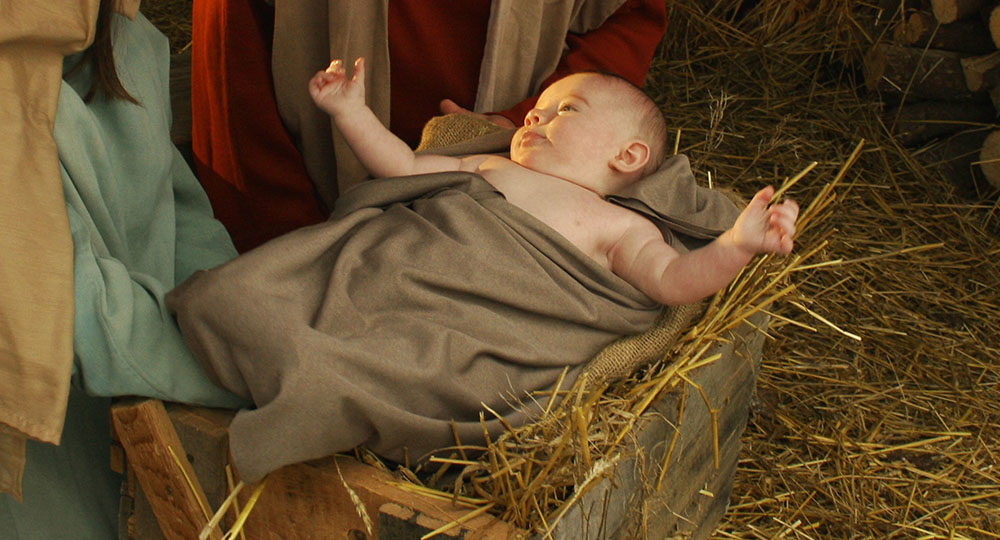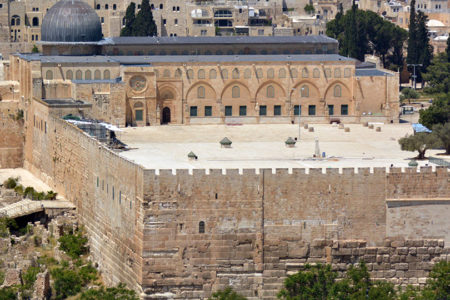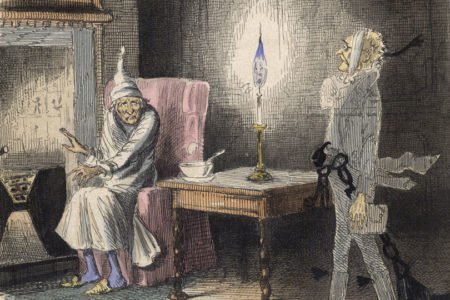How to Identify Him
Genesis 49:10—His Authority
The scepter shall not depart from Judah, nor a law-giver from between his feet, until Shiloh comes; and to Him shall be the obedience of the people.
This portion of the Torah (Five Books of Moses) describes a person arriving at a precise time. Traditional Jewish scholarship considers the passage Messianic. According to The Jewish Study Bible, this verse “has traditionally been viewed as a messianic prophecy in both the Jewish and Christian traditions.”1 Shiloh, the key word in the verse, is often not even translated because of the difficulty in doing so. Yet that same word is translated “Until He comes whose right it is” in Ezekiel 21:27. The Targums (Aramaic translations of the Hebrew Bible) say the word Shiloh refers to a “King Messiah.”2 Thus the man of authority from Judah is King Messiah.
Deuteronomy 18:18–19—His Status
I will raise up for them [the Jewish people] a Prophet like you [Moses] from among their brethren, and will put My words in His mouth, and He shall speak to them all that I command Him. And it shall be that whoever will not hear My words, which He speaks in My name, I will require it of him.
This Torah portion describes a person who would come after Moses, who would be like Moses. Thus he would be a Jewish prophet. And, like Moses, he would communicate the very words of God to God’s people. It would be incumbent upon them to listen to him.
Isaiah 7:14—His Birth
Therefore the Lord Himself will give you a sign: Behold, the virgin shall conceive and bear a Son, and shall call His name Immanuel.
A virgin having a baby is certainly unique and hard to believe. In fact, such a thing would be a miracle. Yet it is no easier for an 89-year-old woman long past the change of life (“Sarah had passed the age of childbearing,” Gen. 18:11) to have a child with a 99-year-old man. God’s announcement that Sarah would bear Abraham a son caused her to laugh in disbelief. Yet Isaac (Hebrew for “laughter”) was born, his very name a testament to the miracle.
If that miracle happened—and Jewish people believe it did—what would prevent another, similar miracle? Is Almighty God not capable of doing the impossible? And the precedent for a supernatural birth was already in place.
While working on the Septuagint (200–300 B.C. Greek translation of the Hebrew Scriptures), Jewish scholars chose the Greek word parthenos to translate the Hebrew word almah. Parthenos unmistakably means “virgin.” Thus every Jewish person who read the Greek version of the Hebrew Bible understood the child in Isaiah 7:14 would be born of a virgin.
Who was this child whose name would be Immanuel, meaning “God with us”? Traditional Jewish thinking consistently says that he is King Messiah. The Babylonian Talmud states, “R[abbi] Huni in the name of R[abbi] Ide and R[abbi] Joshua said, that this man is the King Messiah of whom it is said, Psa. 2:7, ‘This day have I begotten thee.’”3
Micah 5:2—His Birthplace
But you, Bethlehem Ephrathah, though you are little among the thousands of Judah, yet out of you shall come forth to Me the One to be Ruler in Israel, whose goings forth are from of old, from everlasting.
The prophet Micah foretold that Messiah would be born in southern Bethlehem (Ephrathah). There were two Bethlehems, one in the north and one in the south. Targum Jonathan states, “Out of thee Bethlehem shall MESSIAH go forth before me, to exercise dominion over Israel.”4
Isaiah 9:6—His Name
For unto us a Child is born, unto us a Son is given; and the government will be upon His shoulder. And His name will be called Wonderful, Counselor, Mighty God, Everlasting Father, Prince of Peace.
This prophecy tells of the unique nature of the baby to be born. These names characterize his nature. Wrote Dr. Michael L. Brown:
As the brilliant Hebrew and Rabbinic scholar Franz Delitzsch noted, even Samuel David Luzzatto, one of the greatest of the Italian rabbis, rightly observed that “you do not expect to find attributes of God here, but such as would be characteristic of the child.” This agrees with statements in the Talmudic and midrashic writings, along with the comments of Abraham Ibn Ezra, all of which state that the names refer to the child.5
The Midrash on Ezekiel 48:35 asks, “What is the name of KING MESSIAH? R[abbi] Abba, son of Kohana said ‘JEHOVAH,’ for it is written, This is HIS name whereby HE shall be called, THE LORD OUR RIGHTEOUSNESS.”6 Clearly the boy (King Messiah) that is born will possess the name God and bring peace.
Despite these scholarly commentaries, it is interesting that the 1917 Jewish Publication Society translation of the Holy Scriptures takes Isaiah 9:6 and merely transliterates the Hebrew, with the English footnoted at the bottom of the page. This suggests an uneasiness with the text, perhaps because the reference to King Messiah is too obvious.
ENDNOTES
- Adele Berlin, Marc Zvi Brettler, and Michael Fishbane, eds., The Jewish Study Bible, featuring The Jewish Publication Society TANAKH Translation (Oxford: Oxford University Press, 2004), 97 n.
- Kenton Beshore, The Messiah of the Targums, Talmuds and Rabbinical Writers (Los Angeles: World Bible Society, 1971), chart 5.
- Ibid., chart 9.
- Ibid., chart 10.
- Michael L. Brown, Answering Jewish Objections to Jesus, 3, Messianic Prophecy Objections (Grand Rapids: Baker Books, 2003), 33.
- Beshore, chart 16.






